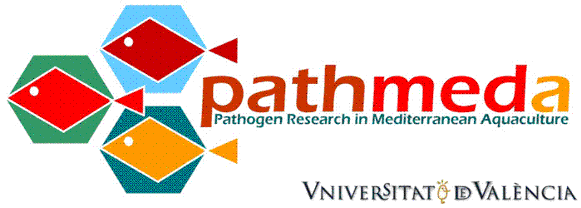|
|
The main goal of the EU’s Common Fisheries Policy
towards aquaculture is to reconcile exploitation with
sustainable development and environmental protection. The contribution
of PATHMEDA to this objective has been twofold. First, we provide
new information on little known pathogens of farmed fish and second our research provides a basis to develop
more efficient prophylaxis and treatments. Ultimatelly this will facilitate better
control policies, diminishing the use of chemicals harmful to the
marine environment. In addition, the development of molecular tools for
pathogen diagnosis carried out during this felowship has the added value of not requiring the sacrifice
of fish, thus allowing to preserve valuable specimens, such as
broodstock.
PATHMEDA
seeked to
integrate
a wide range of different expertises (microbiology, virology, fish
health
and parasitology) available at the University of Valencia and its Partner
Organizations.
The main scientific objective of PATHMEDA was to consolidate new
research avenues at the University of Valencia in two key aspects:
 |
Diagnosis
and
typing techniques of pathogens, particularly for fish viruses.
|
 |
Techniques to
evaluate the immune response to pathogens of
finfish species of interests for Mediterranean aquaculture.
|
|







